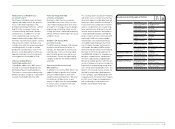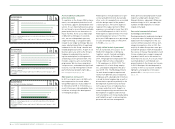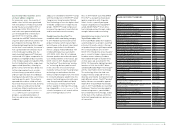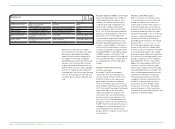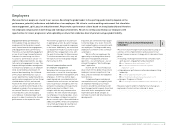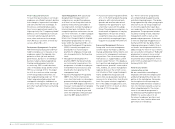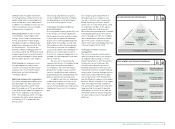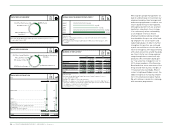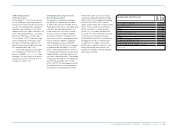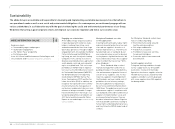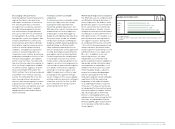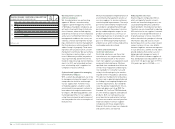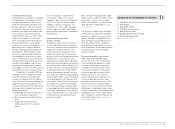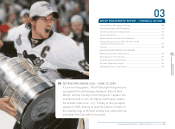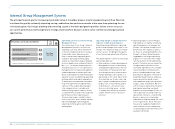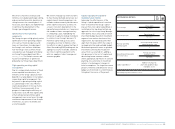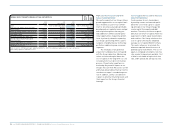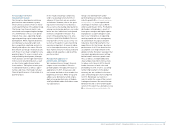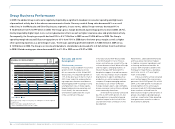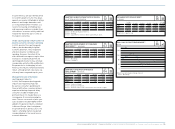Reebok 2009 Annual Report Download - page 107
Download and view the complete annual report
Please find page 107 of the 2009 Reebok annual report below. You can navigate through the pages in the report by either clicking on the pages listed below, or by using the keyword search tool below to find specific information within the annual report.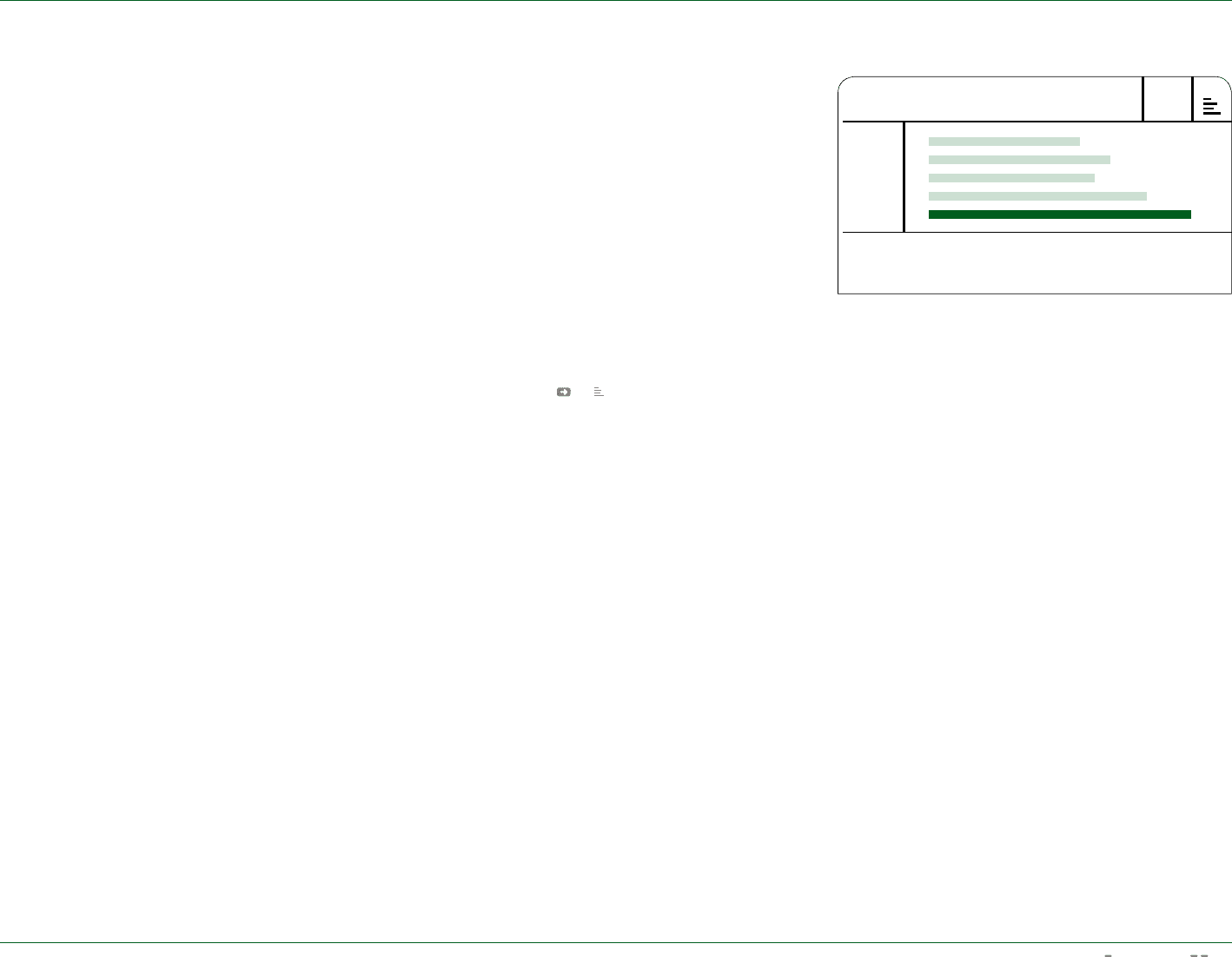
Training to achieve sustainable
compliance
To achieve long-term sustainable compli-
ance in the supply chain, we consider
training even more important than
monitoring and policing factories. Our
SEA team offers specific training courses
and workshops for factory supervisors
and managers to help them apply our
Standards and implement best practices.
These workshops include, for example,
introductory training on our Workplace
Standards and SEA operating guidelines,
detailed training on effective health,
safety and environmental practices as
well as training in the correct application
of rating and compliance planning tools
and supplier self-assessment methods.
Further, we promote the establishment
of sustainable structures that actively
involve workers and management of our
suppliers as well as local employee asso-
ciations and non-governmental organisa-
tions (NGOs). The team also organises
workshops for licensees, agents and
adidas Group business entities in order
to build personnel capacities through-
out our company. In this way, acceptable
working conditions become a routine part
of business activities. In 2009, the SEA
team conducted 216 training sessions
and workshops (2008: 251).
Encouraging self-governance
Good management systems help factories
improve their day-to-day operations
and support the process of internalisa-
tion and self-governance. Therefore,
we support our core business partners
in establishing management systems
with internationally recognised stand-
ards such as ISO 14001 for environmen-
tal management. By running a certified
management system, our suppliers dem-
onstrate commitment to continuously
enhancing their performance. We help
them build or improve human resources
systems to maintain proper working
conditions, including factory grievance
systems to routinely find and fix non-
compliance issues. Further, by enforcing
employment standards at the sites of our
manufacturing suppliers, we empower
workers to protect their own rights and
take an active role in decision-making. In
2009, our Group’s supply base included
19 athletic footwear suppliers’ factories,
which were OHSAS 18000 and/or ISO
14001 certified. These factories produced
around 82% of our footwear sourcing
volume. The remaining 18% of our foot-
wear sourcing volume is produced in
factories that have management systems
in place but have not been certified. All
footwear factories are regularly assessed
against the adidas Group’s standards
regarding environment and workplace
health and safety.
Monitoring through factory inspections
The SEA team assesses compliance with
our Workplace Standards by means of
factory inspections. Our auditors check
performance against a customised risk
list for each factory that is monitored.
The methodology is linked to a factory
rating which measures the effectiveness
of compliance systems and the work of
their administrators. This enables us to
precisely determine training needs at
our suppliers’ factories. During 2009,
we conducted 1,592 factory visits (2008:
1,323 visits) involving management and
worker interviews, document review,
facility inspections and training sessions
at different levels in our supply chain
see 01. In addition to our own
monitoring activities, we value
independent assessment by third
parties to demonstrate the credibility of
and provide verified information about
our programme to stakeholders. As a
member of the Fair Labor Association
(FLA), the adidas Group is subject to
external assessment by independent
monitors, participation in the FLA
third-party complaint system and public
reporting. In 2008, the monitoring
programme of the adidas Group was
re-accredited by the FLA for a period
of two years. This decision was based
on independent factory monitoring and
verification reports of supplier facilities,
and a thorough audit of monitoring
protocols, training programmes and
auditing systems. Since joining the FLA,
more than 240 Independent External
Monitoring (IEM) audits and verification
visits have been conducted at adidas
Group suppliers.
N
°-
01
NUMBER OF FACTORY VISITS
2005 1 )
2006 2 )
2007
2008
2009
916
1,101
1,007
1,323
1,592
1) Including Salomon.
2) Including Reebok, Rockport and Reebok-CCM Hockey from February 1, 2006
onwards.
GROUP MANAGEMENT REPORT – OUR GROUP Sustainability 103


